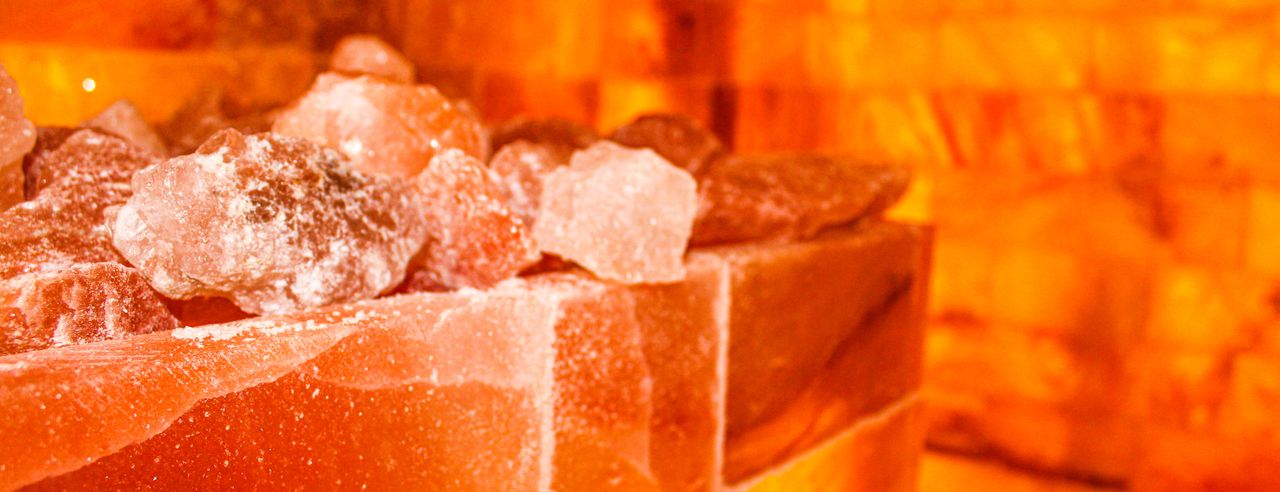
Study on Aerosal halotherapy for hypertrophy
Matteo Gelardi et al.
August 2013
Climate treatment
Adenotonsillar hypertrophy (ATH) is a common cause of upper airway obstruction syndromes associated with middle ear and sinus dysfunction, dysphagia and voice disorders, sleep quality disturbances and occasionally facial dysmorphism. The treatment of ATH is essentially based on a series of medical-surgical tools, including nasal irrigation with topical antibiotics and corticosteroids and/or treatment with systemic corticosteroids, immunoregulators, thermal treatments, adenotonsillectomy, etc.
The aim of this study conducted by Matteo Gelardi was to evaluate the efficacy of Aerosal halotherapy in the treatment of subobstructive adenotonsillar disease and associated conditions compared to placebo treatment.
A total of 45 patients with subobstructive adenotonsillar hypertrophy were randomized to receive either Aerosal halotherapy or placebo over 10 treatment sessions. The primary objective was to reduce the extent of adenoid and/or tonsil hypertrophy by at least 25% compared to baseline.
In the intention-to-treat analysis, a reduction in the extent of adenoid and/or tonsil hypertrophy of ≥25% after 10 treatment sessions was observed in 44.4% of patients in the halotherapy group and 22.2% of patients in the placebo group. Among the secondary outcomes, the reduction in hearing loss after 10 treatment sessions was higher in the halotherapy group than in the placebo group. A time-dependent analysis showed a significant improvement in peak pressure in the Aerosal group. No side effects were reported during the study. In addition, the therapy was well accepted by the young patients, who considered it a playtime rather than a therapy.
Aerosal halotherapy can be considered as an adjunct, although not a substitute, treatment for subobstructive adenotonsillar syndrome and related conditions. However, further research is needed to improve ATH treatment.
The most important information on the study at a glance
- Indications
- Adenotonsillar hypertrophy
- Institution
- Section of Otolaryngology, Department of Basic Medical Science, Neuroscience and Sensory Organs, University of Bari, Italy
- Title
- Study on Aerosal halotherapy for hypertrophy
- Brief description
- The study shows: Aerosal halotherapy reduces tonsil enlargement and hearing loss in adenotonsillar hypertrophy.
- Original title
- Double-blind placebo-controlled randomized clinical trial on the efficacy of Aerosal in the treatment of sub-obstructive adenotonsillar hypertrophy and related diseases
- Link to the study
- https://pubmed.ncbi.nlm.nih.gov/24041858/
Suitable trips for this study topic
You might also be interested in
Climate treatment
Healing & thermal therapy
Rheumatism / Joints / Arthritis / Arthrosis
Spine / Discs
Shlomi Codish et al.
July 2005
The study shows that hydrotherapy and climatotherapies can improve mobility and quality of life in patients with ankylosing spondylitis
Climate treatment
Rheumatism / Joints / Arthritis / Arthrosis
Marco Harari et al.
April 2011
The study shows that climatotherapy at the Dead Sea significantly increases vitamin D and relieves pain in rheumatic diseases.
Climate treatment
Psoriasis / Eczema
Arnon D. Cohen et al.
January 2001
Dead Sea climatotherapy shows significant improvements in psoriasis.